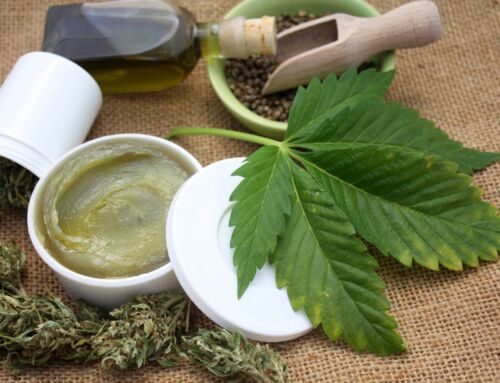Original content posted: https://www.thecut.com/2020/04/weed-coronavirus.html
It’s been challenging to get a clear picture of the risks associated with smoking amid the coronavirus pandemic. The FDA, which previously warned that vapers and smokers with underlying health conditions might be at higher risk for COVID-19 complications, recently modified that stance, conceding it’s unknown whether smoking and vaping increase the risk of getting the novel coronavirus, while warning that smoking and vaping may lead to worse outcomes for those who do get the virus.
But smoking and vaping are different things, as are the outcomes depending on what is smoked. A number of news stories have conflated smoking tobacco with smoking cannabis, when it’s established that the risks for each differ — while regular cannabis use can result in chronic bronchitis, it “does not appear to lead to significant abnormalities in lung function,” according to research. Generally speaking, the health risks associated with smoking cannabis are thought to be lower than those associated with smoking tobacco.
So can I smoke weed right now, so long as I don’t puff and pass?
Maybe don’t, says Erick Kaufman, an internal medicine specialist and medical director for Doctors Of Cannabis. “Cigarette smoking and cannabis smoking are a little bit different — cigarette smoking tends to be something that people do 10 or 20 times a day, whereas cannabis smoking is not usually as frequent,” he says. Cannabis smoking sessions also tend to be shorter than cigarette smoking sessions. Both of these factors likely contribute to cannabis’s overall lower risk. Still, says Kaufman, smoke — any kind of smoke — is an irritant, and will inflame the respiratory tract.
“If you already have an underlying inflammation and irritability in your respiratory tract from use of cannabis, and then you get COVID-19 on top of that, it’s easier to get an overblown immune reaction,” says Kaufman. Overblown immune reactions can kill, and have killed, people infected with coronavirus. This is a risk that’s likely higher for regular smokers with chronic bronchitis, but it’s a risk best avoided entirely if possible.
According to Matthew Springer, a professor of medicine and smoke researcher at UCSF, while we know less about the effects of cannabis specifically, what we know about coronavirus and smoking tobacco might present some concerning analogies to smoking cannabis. “We know that smokers, tobacco smokers, have a higher risk of getting the virus and of doing poorly,” he says. “Tobacco smoke specifically has been shown to increase the expression of a molecule called ACE2 on the cells that line your lungs, and that’s the molecule that the virus uses to latch onto cells and infect them.”
Whether or not cannabis smoke performs a similar adverse function is unknown, but Springer hopes that’s something we’ll find out soon enough. In the meantime, he says, “It’s a reasonable presumption that smoking things will be bad in general.”
Avoiding smoking cannabis right now protects not only you, but others.
It’s not just our own respiratory systems we have to consider, either, says Kaufman. Because cannabis smokers often cough — whether regularly, or just after taking a hit — they might be spreading the virus without realizing it.
“This is theoretical, but if you’re smoking, and you get a cough reaction, you’re coughing the virus into the room, which could spread it,” says Kaufman. Especially because so many people infected with coronavirus may be asymptomatic, it’s important for those who do smoke to consider the risks they may be exposing their partners, roommates, or other social isolation-mates to.
Can I vape cannabis instead?
Vaping cannabis oil — particularly black market oil — poses health risks even in non-pandemic times. “If you’re using a vape pen, you’re taking some chances that there’s stuff other than pure cannabis oil in that cartridge,” says Kaufman. “Some of those things, like polyethylene glycol, PEG, and of course the vitamin E acetate, are known to produce significant inflammation and injury.”
Vaporizing dry flower, using a product like PAX, is generally safer and easier on the lungs than smoking, but Kaufman still recommends avoiding it for the time being. “We should all be really protective of our respiratory tracts right now, so it’s probably not a good time to be doing any inhaling of cannabis if you can help it.”
Okay, fine: what about edibles?
Here, finally, some good news: edible (and drinkable) forms of cannabis are A-okay, in Kaufman’s book. “THC, even in small doses, even if it’s taken by mouth, can be a little bit of a bronchial dilator, so theoretically, it may even be protective” against respiratory distress, he says. (It’s even been studied for use in treating asthma and COPD patients.) In animal and lab studies, cannabidiol (the major non-psychoactive component in cannabis) has also been shown to have anti-inflammatory properties, which may also prove beneficial — though much more research is needed in humans.
More helpful yet may be some of cannabis’s other established benefits. Cannabis can be helpful with pain, muscle spasms, insomnia, and anxiety, says Kaufman — all of which might be exacerbated by this period of high stress. Getting enough sleep and managing stress are both essential in keeping our immune systems strong, and for some people, orally administered cannabis may prove a helpful tool.
This doesn’t, unfortunately, mean weed edibles are entirely without risk (what is?). “As a smoke person, I’m always tempted to say, if you have to take THC, eat it,” says Springer. “The one caveat with that is that edibles have a higher risk of overdosing.” Because edibles can take hours to hit, people might think they aren’t high, and end up taking more/too much. People who are too high can get paranoid, and feel like they’re dying. They almost never are, but we’d all do well to avoid unnecessary ER trips right now, which is why it’s important for anyone consuming edibles to be mindful of dosage and timing.






